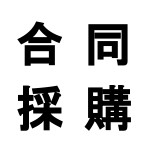China Contract Damages Done Right
Contract damages can be a great thing in a China contract, but only if done right, according to Dan Harris, writing in the Harris Bricken China Law Blog.
He explains that the term “contract damages” refers to a contract provision setting out the damages for breach. In the standard commercial contracts his firm writes for clients, the agreements usually include a specific damage amount for certain (but not all) violations of the contract terms.
“The only constant is that we try to make the amount as high as we can, while at the same time erring on the side of keeping it low enough so that it will actually work to scare the Chinese company into not breaching the contract,” Harris writes.

 Dan Harris
Dan Harris Every word matters in a contract and this is as true in Chinese as it is in any language, writes Dan Harris on
Every word matters in a contract and this is as true in Chinese as it is in any language, writes Dan Harris on